Shanghai's falling property prices indicate economic gloom in China
China's property market has been in the doldrums, and prices have been falling, not least in Shanghai. And as prices in Shanghai fall, so will prices in other Chinese cities. Zaobao correspondent Chen Jing looks at the impact of property market movements on the overall Chinese economy.
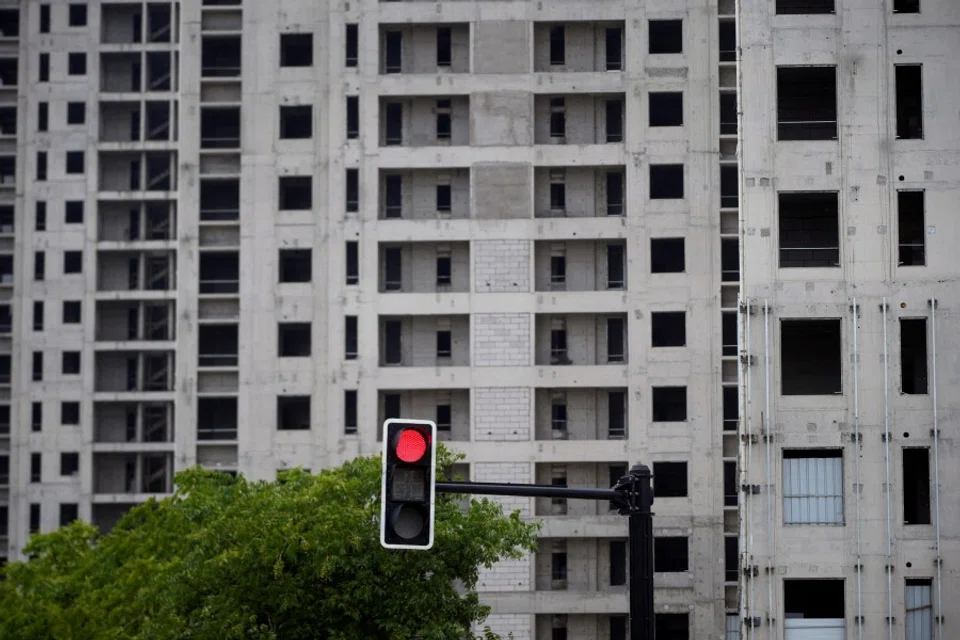
Two years ago, when reporting on housing in Shanghai's school districts, I was taken by real estate agents to view old, rundown, tiny units of less than 50 square metres going for nearly 7 million RMB (US$975,000). I asked the agent in disbelief if the prices for such units could go up even more.
The young agent also looked incredulous as he said: "Even if property prices drop elsewhere, they will still rise in Shanghai."
However, two years later, Shanghai's property prices have indeed dropped, with the most significant decline seen in previously popular resale properties.
The property sales platform I use shows many advertisements for resale properties stating "multiple price reductions" and "discounted to the bone"; the platform data says one downtown apartment had its price lowered eight times in the past three months, with a total reduction of over 1 million RMB.
The urgency of repeated price slashes and such enthusiastic hospitality show that the Shanghai real estate market has shifted towards being buyer-driven...
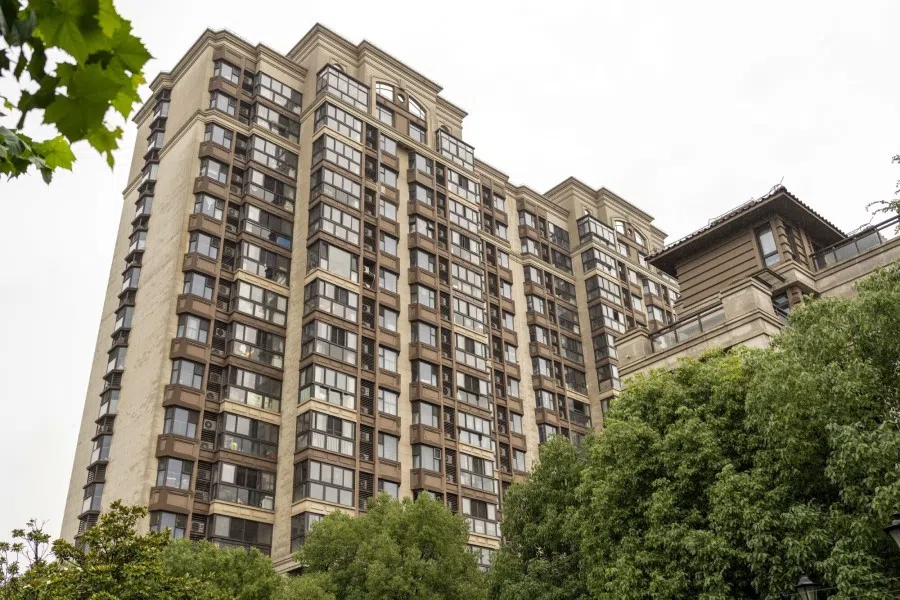
Some online posts by real estate agents reveal that even owners of high-end luxury homes have become highly aware of marketing, creating chat groups and distributing red packets to agents, and offering mineral water, fruits, and snacks to visitors. One homeowner even put up a sign next to the sofa: "Best spot for viewing the river."
Shanghai a buyer's market
The urgency of repeated price slashes and such enthusiastic hospitality show that the Shanghai real estate market has shifted towards being buyer-driven - in other words, buyers are not in a hurry, but sellers are, and now one has to worry that properties in Shanghai may not sell.
... the total number of transactions in Shanghai in May was only about 16,000 units, a one-third decrease from March.
According to data released last week by China's National Bureau of Statistics on housing prices in 70 large and medium-sized cities, after a brief recovery in the first quarter of this year, resale property prices declined again in May. Among the 70 cities, Shanghai saw the largest drop, with a month-on-month decrease of 0.8%. Statistics from industry institutions also show that asking prices in Shanghai's housing market have gone down for three consecutive months, while the number of listed properties for sale has surged by 82% to 180,000 units in the past six months.
Despite the jump in the supply of resale properties and lower asking prices, a report from The Economic Observer said the total number of transactions in Shanghai in May was only about 16,000 units, a one-third decrease from March.
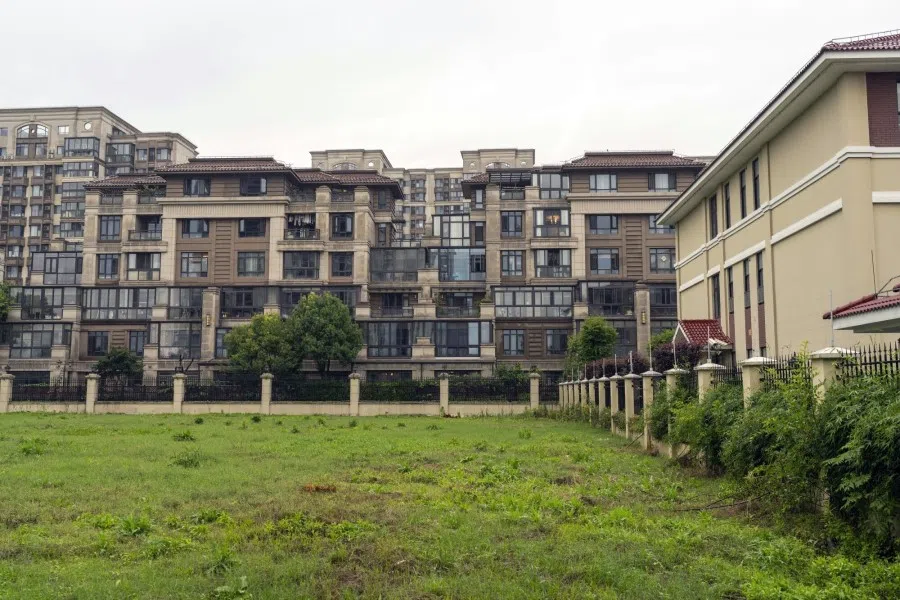
Seeing that properties were not selling well, some homeowners have delisted their properties to avoid being forced to sell at a low price. However, the number of listed properties remains high, showing that there are still many people who urgently need to sell their homes for cash. According to industry insiders, among the sellers in urgent need of money, some have already signed agreements to buy another property and need to sell their current one as a "trade-in" of sorts. Others are preparing to migrate, with a growing number of people who want to transfer their assets overseas following Shanghai's lockdown last year.
Among the 70 large and medium-sized cities, 55 cities saw a decline in resale property prices, an increase of 21 cities compared to April.
Other cities likely to be affected
While the young agent two years ago did not anticipate that houses in Shanghai would be difficult to sell, his judgement was not entirely wrong - when Shanghai's property prices start to decline, other cities in China will certainly not be spared.
In May, prices of resale properties in first-tier cities like Beijing, Guangzhou, and Shenzhen all fell, with prices of new and resale properties falling simultaneously in Shenzhen. Among the 70 large and medium-sized cities, 55 cities saw a decline in resale property prices, an increase of 21 cities compared to April. Data compiled by the real estate research institution China Index Academy shows that in May, resale property prices in 100 cities saw the largest drop since 2022.
The property sector is a bellwether of the Chinese economy. When the market slump spreads from new to resale houses and second/third-tier cities to first-tier cities, this means pessimism about the larger economy is growing. Even in the most well-off cities, confidence that real estate will hold its value is dropping.
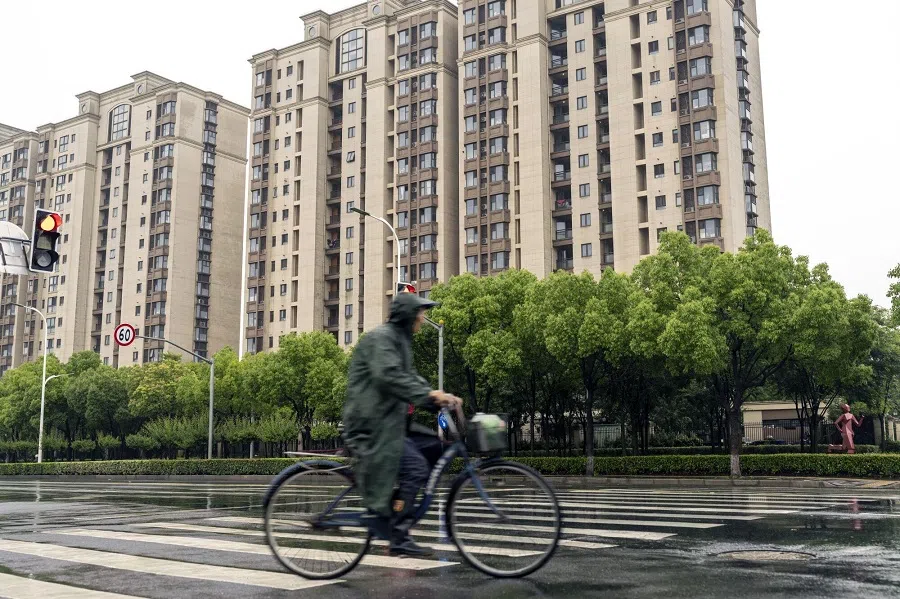
While some housing agents say this is the best time to buy property, the reality is that eager buyers would have done so earlier this year when the economy and property market was just starting to rebound. Hesitant buyers, on the other hand, would now be less willing to make rash moves after seeing the country's lacklustre economic recovery and the tapering off of the housing rebound.
On the other hand, the job market also faces unprecedented pressure as China's youth unemployment rate hits a new high and a record 11.58 million students are expected to graduate from college this year. Following the wave of retrenchments among China's internet companies that started last year, tech employees have either been trapped in "mortgage panic" or slow to purchase a property. Uncertainties about the future have also suppressed the younger generation's rigid demand for housing, making it even tougher for the property market to heat up.
The pessimistic outlook for the Chinese economy has made investors more cautious and consumers more careful, distressing the property and housing market, and in turn inhibiting domestic demand, forming a vicious circle.
Vicious circle bringing down the overall economy
The latest series of weaker-than-expected economic indicators have also spurred several investment institutions to lower China's growth forecasts for the year. The pessimistic outlook for the Chinese economy has made investors more cautious and consumers more careful, distressing the property and housing market, and in turn inhibiting domestic demand, forming a vicious circle.
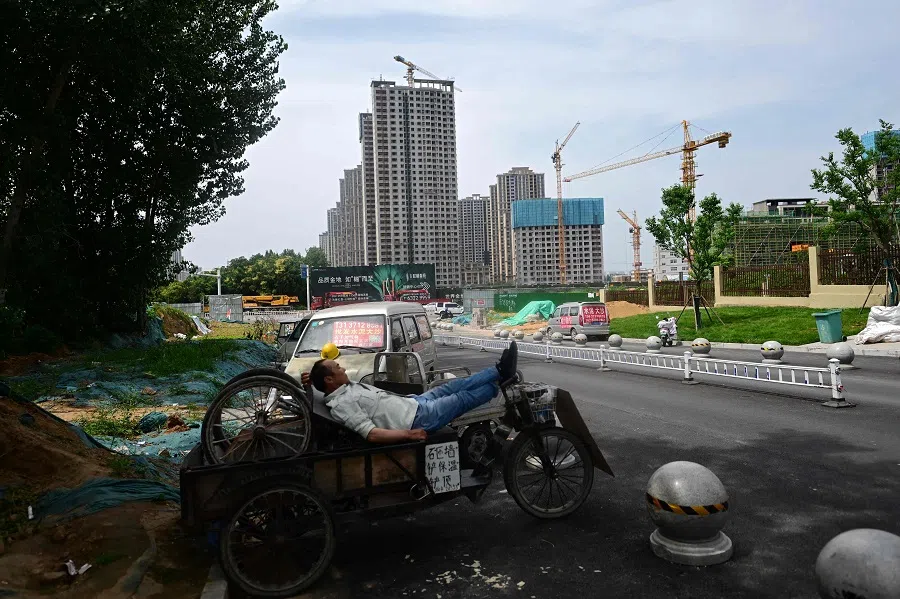
This week, China's central bank lowered the loan prime rate as expected, cutting its main benchmark lending rates for the first time in ten months to revive the market. However, most analysts do not think that this measure can quickly boost the property market. Based on the effectiveness of various support policies implemented over the past year, the market is showing signs of "drug resistance": policies are no longer effective for the long term, and are showing worsening outcomes because they do not solve the root of the problem.
Lu Ting, chief China economist at Nomura, said that the real stumbling block was a lack of consumer confidence. He warned that China's situation was starting to resemble Japan's at the end of the last century: confidence dropped after the real estate bubble burst, leading to decades of poor economic growth and deflation.
During the 2008 financial crisis, then-Chinese Premier Wen Jiabao said that confidence is "more important than gold and money". Fifteen years later, rebuilding private-sector and consumer confidence is once again a roadblock to economic recovery. If officials are unable to find a solution as soon as possible, houses won't be the only commodities that are difficult to sell.
This article was first published in Lianhe Zaobao as "上海的房子也愁卖".
Related: Will China's economy suffer a 'lost decade' just like Japan? | China local governments' fiscal stress may roll over to 2023, think tank warns | Uneven recovery ahead for China's economy | China lines up yet more aid for the property sector, but will it be enough? | China's consumers flush with cash, but recovery is still lagging | Has the pandemic left a 'permanent scar' on the Chinese economy?



![[Big read] When the Arctic opens, what happens to Singapore?](https://cassette.sphdigital.com.sg/image/thinkchina/da65edebca34645c711c55e83e9877109b3c53847ebb1305573974651df1d13a)
![[Video] George Yeo: America’s deep pain — and why China won’t colonise](https://cassette.sphdigital.com.sg/image/thinkchina/15083e45d96c12390bdea6af2daf19fd9fcd875aa44a0f92796f34e3dad561cc)
